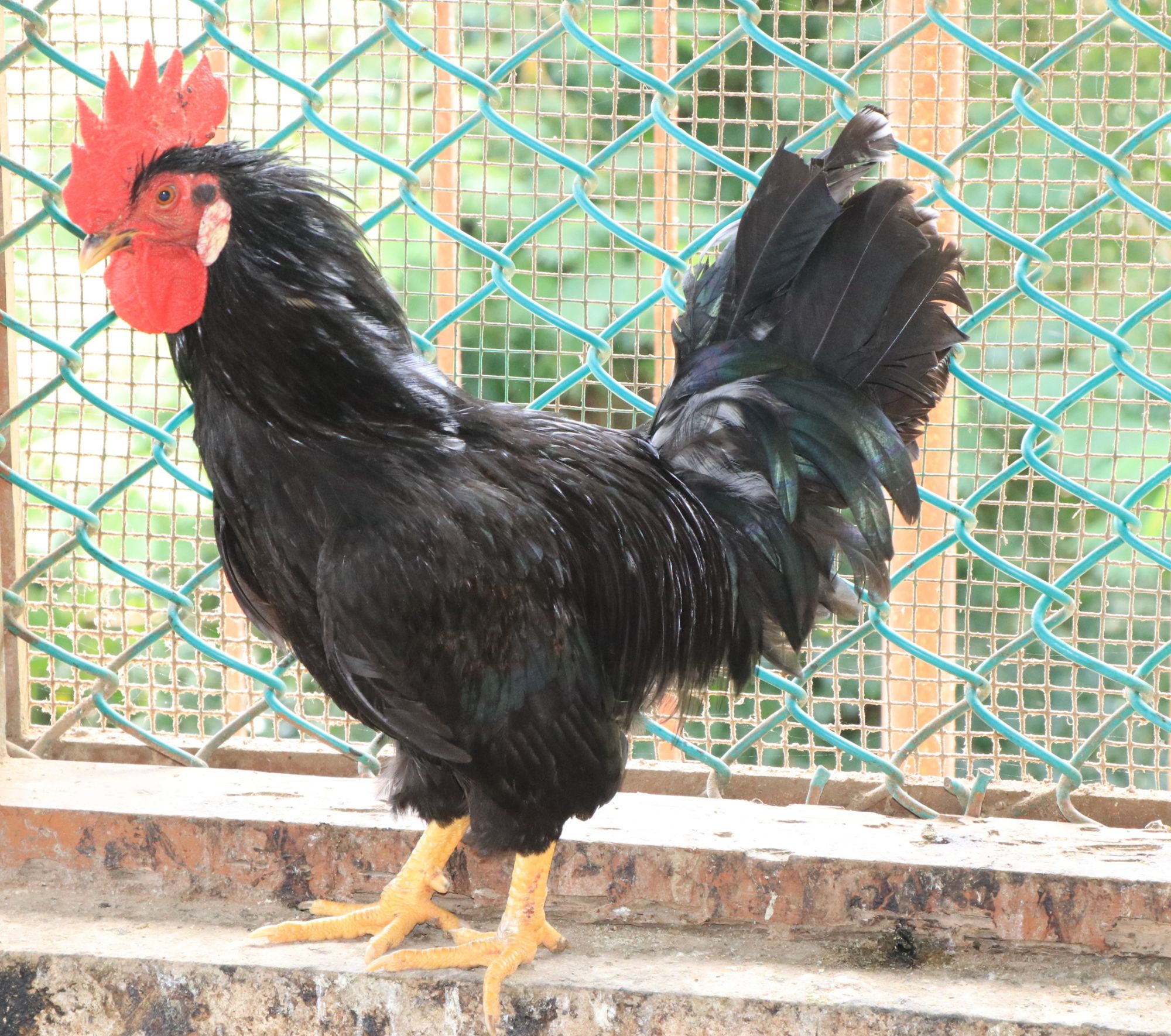Nicobari fowl of A&N Islands: A hidden treasure under impending climate change scenario

Nicobari fowl is well adapted in the island milieu condition under impending climate change scenario. Nicobari fowl in Mon-Khmer language (Austro-asiatic language spoken by Nicobarese) is called as Takniet which means ‘short legged chicken’. Nicobari fowl is endemic breed of Nicobar group of Islands and maintained their unique genetic identity due to natural geographical barrier. The one and unique breed has evolved in Nicobar group of islands and genetically closely related to Red jungle fowl and belong to Gallus domesticus species. They are medium sized with short leg. They have compact body conformity. These birds are mostly single combed. Wattles and ear lobe are pinkish in colour. They have short and thick neck with mostly black plumage tipped with brown shade, breast bulging in front, medium size tail and long saddle feathers fitting well with tail. Nicobari fowl is less susceptible to Ranikhet disease, Mareks disease and Infectious bursal disease unlike exotic breeds of fowl. They are comparatively better in egg productivity compared to desi birds reared in backyard farming. They produce 130-140 eggs per annum and gains 1.2 kg body weight at 20 weeks of age.
Intervention proposed and implemented by scientists of ICAR-CIARI:Since the Nicobari fowl is efficient feed convertors, production potential of these fowl can be improved through development of low cost housing and feeding of balanced ration prepared using locally available ingredients such as rice, wheat, coconut cake and fishmeal . The systemic approach is the need of the hour since this unique germplasm is on the verge of extinction after Tsunami and also due to introduction of exotic breeds. Thus rearing of this germplasm at village level in Andaman and Nicobar group islands is recommended as a token of in situ conservation. Further, for conservation of this germplasm, ICAR-CARI is maintaining Nicobari fowl and is supplying cocks of Nicobari fowl.
Benefit:Establishment of rural poultry farming with cocks of native Nicobari fowl and large scale multiplication at farm level is a novel vista for mass propagation of this germplasm, which is bestowed for their hardness, better immunity and adaptability to local agro-climatic environments.
Source : Contact person with Name, Designation e-mail and phone no: Dr.T.Sujatha, Sr.Scientist, Division of Animal Science, ICAR-CIARI, Port Blair, Sujatha.t@icar.gov.in, +919531818976
